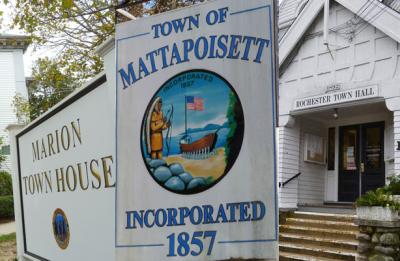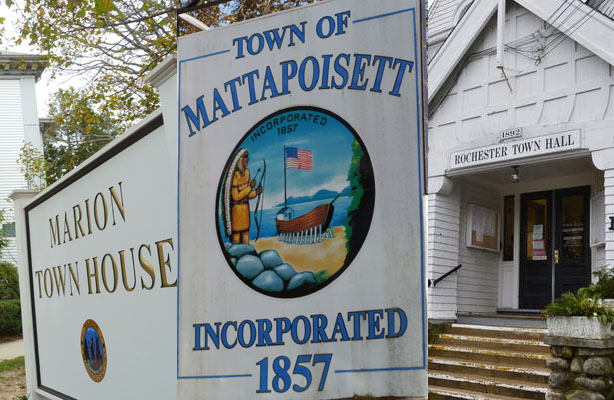Tri-town nurses reach out to faith community in face of rising opioid abuse
The number of people dealing with opioid addiction in the tri-town is growing. And as public health nurses try to get the word to the community, they are reaching out to faith-based groups for support.
Marion, Mattapoisett and Rochester are part of the Massachusetts Opioid Addiction Prevention Collaborative, one of several groups across the state that has received funding to study and find solutions to opioid abuse in their communities.
Tri-town public health nurses Kathy Downey, Betsy Dunn and Amanda Stone recently met with leaders of the faith community to begin a discussion on how they can engage in the conversation.
The nurses have spent more than a year collecting data on the tri-town through interviews, listening sessions, surveys and engaging with students and school officials. Out of that research, they selected several areas to focus on, a major one being prevention.
The nurses have focused on the junior high and high school, including training on how to administer Narcan, an medication that can reverse overdoses, and working with the Healthy Tri-Town Coalition. But, Downey said there needs to be education in elementary schools as well as for parents.
“We need to be in [kindergarten] through sixth. A lot of the behaviors are already in place by the time they get to junior high school,” said Downey. “We need to do a better job. Kids are a captive audience, but we’re not getting to the parents. We need to get to families so that parents understand what the risk is.”
Also on the prevention front are new 24-7 kiosks at tri-town police stations where people can leave prescriptions and syringes. Downey said youth often have easy access to prescription drugs at home, at grandparents’ houses or at friends’ homes.
Downey said the collaborative also wants to expand its focus to include elders, a population where opioid addiction can remain hidden. She said the public nurses are now surveying that community to collect data.
With so many areas in need of attention, the potential to partner with churches could have a significant affect on the community.
At a recent meeting with faith-based leaders as well as local physicians and concerned community members, the three public health nurses outlined the issues facing the area and the research they’ve done so far. Downey said Marion alone has seen an uptick in overdoses in the past year, and though the numbers are smaller than what some cities see, they're significant for a small community.
Those who attended the gathering are now returning to their congregations to assess how they might help.
Sue Grosart, the Mattapoisett Congregational Church Mission Committee chair, said her church will likely start with an outreach to the community in September to help people understand the opioid crisis.
Grosart said she’s not sure what else they will do yet, but she feels the issue is an important one for the local church to engage with.
“We felt the churches are a place that can have some sway in the community and maybe provide a nonthreatening and non-condemning way to present information and get information to people,” she said. “Anyone who can reach out and speak about this and provide people in need with resources about it should do so.”
Downey said she doesn’t want to pressure churches to get involved, but there is plenty of work to be done.
“Because we’re from small towns, we’re not big enough to move the world, but each of us taking on a piece of it is huge,” she said. “This is a puzzle that we’re all trying to put together. Whatever piece they can take will be awesome and much appreciated.”













